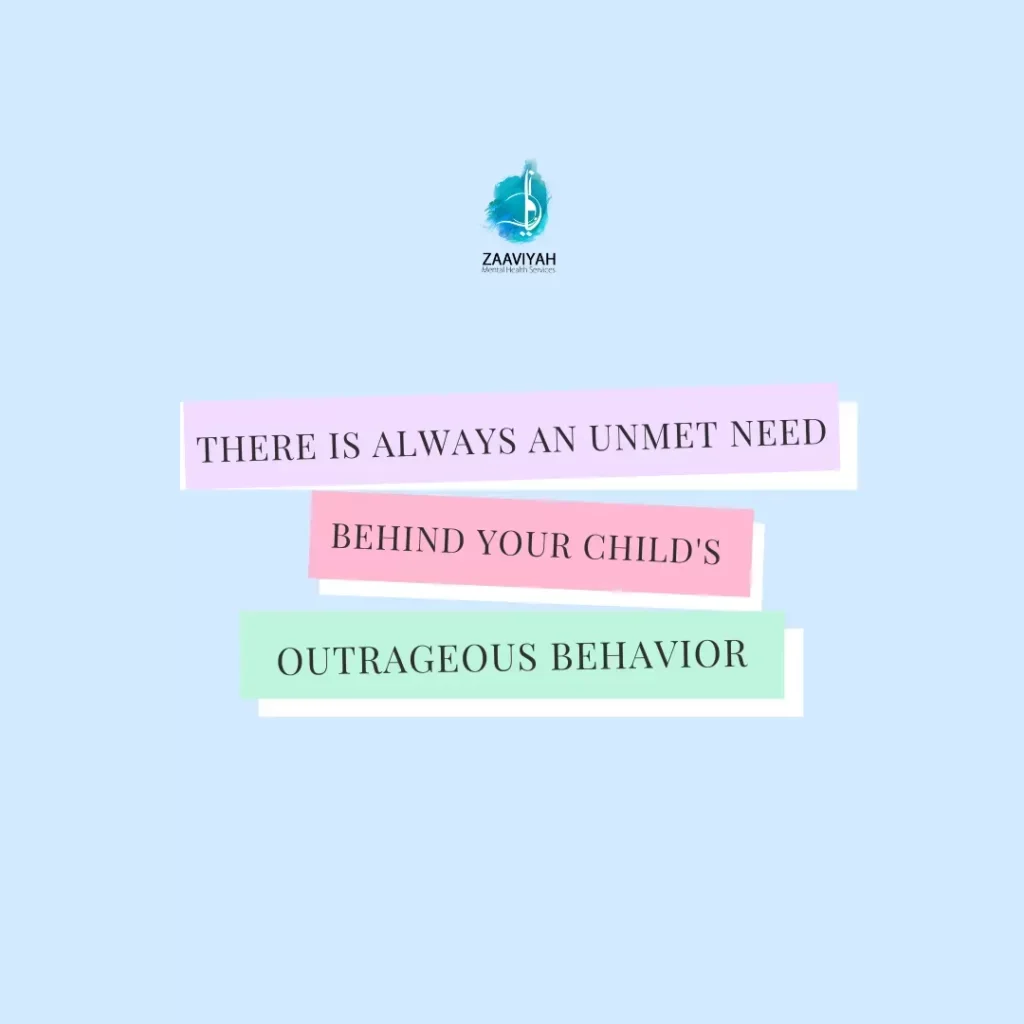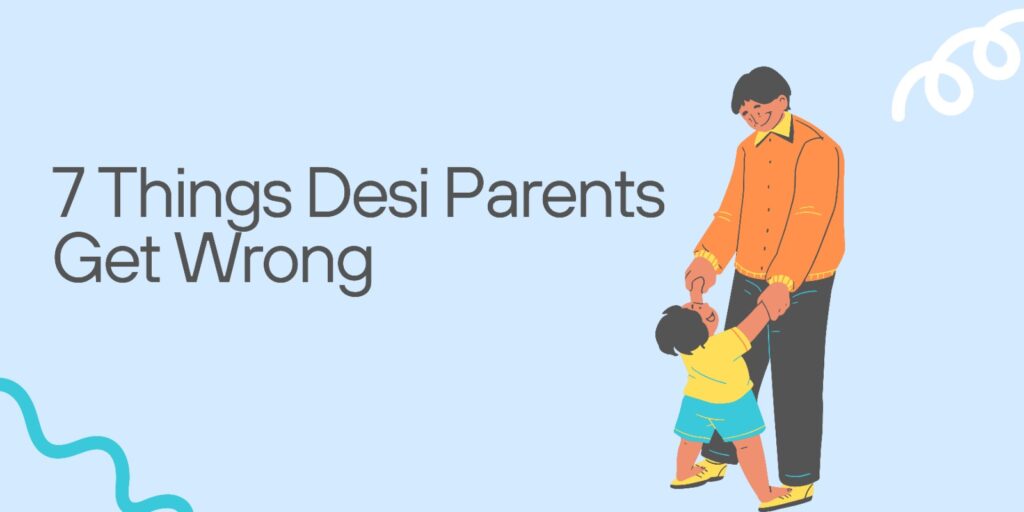We all have had those moments and situations, in different areas of life, where, as Desi parents we could not hold ourselves back from making choices for our kids or doing things just the Desi way.
What is the ‘Desi way’ to begin with? By definition it is those little, tiny decisions that parents make that they feel are culturally and socially appropriate. But are those constructs or behaviors right for your child given your circumstances and family system?
What is the ‘Desi way’? It is those little, tiny decisions that parents make that they feel are culturally appropriate
If you are reading this, chances are, you are a parent who wants to work on your relationship with your child, however, as a Desi parent, you may feel attacked.
Now that we have warned you, let us take you down the Desi parenting pathway and reflect upon what we might be doing the wrong way.
1. Thinking of our children as achievement machines.
They are walking, talking humans who have choices of their own. As parents, our goal is to have their best interests at heart and this can lead to us feeling the need to make choices for them, but what we may be doing is denying them the opportunity to learn from their mistakes.
Whether it is academics, learning a new skill or a professional choice, let your child take the lead and see what amazing things they are capable of doing, all by themselves. Yes, you can jump in to guide and support but keep a check on those controlling Desi parent impulses!
Let your child take the lead
2. Judging and condemning our children when they share their struggles instead of just listening with empathy.
A Desi child tells their parent how much their feelings of anxiety around school tests and the parents start with why it happened in the first place, how their social company influences
their academics, how their social media usage has impacted their grades, and how…da…da…da… The list goes on.
Pause and think. Is this why your child shared this with you in the first place? If they shared a struggle with you, the best thing you can do for them is to listen and brainstorm ideas on how to resolve the issue with them. Chances are that if they shared a concern with you, they are extremely upset about it so do not let your Desi parent fuse go off!
You can also help instill confidence and faith in your child and make them believe that they have got this! Positive words can go a long way. You can order “Zaavi Says”, an affirmation deck full of positive words, that you can use to help your child feel more empowered and in control, on www.zaaviyah.org.
If your child shared a struggle with you, the best thing you can do for them is to listen

3. Believing that academic success is the sole pathway to success.
Agreed – studies take you a long, long way. You reap the fruit of having those credentials for the rest of your life. But what if I am a child who doesn’t enjoy studying or I just happen to have other talents and skills? As Desi parents we have been drilled to think that academics alone can give you a skill set to excel otherwise things may be terribly wrong!
So what if your child ends up getting a grade below an A or wants to take a career path that is unconventional? You pushing them towards academia and forcing those values may not take them anywhere, but putting your trust in them, reassuring them and supporting them will surely take them to the place you and they want to be at.
As Desi parents we have been drilled to think that academics alone can give you a skill set to excel otherwise things may be terribly wrong!
4. Pushing our kids against their wishes in the name of good manners and appearing cultured.
Say salaam to uncle and aunty, but what if I don’t want to meet or greet them because I am three years old and can’t care any less? No, but that’s how you will appear well mannered.
Share your packet of chips but what if I don’t want to because I only have one bag left of my favorite snack? No, you have to because you will appear well mannered.
In the name of good manners and appearing cultured and groomed we push our kids against their wishes. By constantly asking (read: forcing) our kids to do things that do not sit well with their choices, we teach our kids that they have to keep giving, sharing and doing, even if they don’t like or want to, instilling an idea that ‘your needs and choices don’t matter’. This could further build up to a belief that my needs, feelings and choices do not matter and will not even in the future.
By constantly forcing our kids to do things that do not sit well with their choices, we are instilling the idea that ‘your needs and choices don’t matter’
5. Thinking punishment will work on our kids over gentle and mindful parenting.
Children today are more aware, smarter and can look out for themselves better than we could as children. Instead of using punishment as a tool, learning gentle and mindful parenting strategies may actually help your child build a closer and stronger bond with you.
Why did your child do what they did, that made you feel so angry and out of your control? There is always an unmet need behind your child’s outrageous behaviour. Tap into that moment as a parent and think what could you be doing as a parent that may be wrong or what could you do to help or support them through that difficult moment instead of scolding or hitting.

6. Not teaching them about good touch and bad touch, because orienting them with their biological anatomy and needs at an early age will give them silly ideas.
Some parents believe that holding conversations about these things is almost like planting those little pest-like ideas which could lead to harmful scenarios.
No, mommy and daddy, you are teaching your kids about topics of importance and educating them about their bodily anatomy and autonomy both. You are sharing with them ways to protect themselves and gain a better understanding of themselves and the world around them.
It is an absolute misconception among Desi parents that once you talk to your children about such things, your child will grow more curious and even act out on those things. By holding such conversations, you are actually giving them access to safer avenues of discussion for such curious notions instead of letting them take the tech tour that most kids, unfortunately, have access to.
It is an absolute misconception among Desi parents that once you talk to your children about their bodily autonomy, they will grow more curious & even act out on those things
7. Never apologizing to our children.
Sometimes as adults we make horrendous mistakes and get away with them just because ‘hum toh aap kay baray hain’ . With all due respect, sometimes it’s okay to accept that we made a mistake. So, yes, what I am saying is, it is also absolutely okay to apologise for it to our child.
We all know the inner child in us would have been at a more peaceful spot, had we gotten those apologies from our parents. Accepting our faults and making amends for them, not only helps relationships grow further but also heals and repairs those wounds that our children carry with them.
We all know the inner child in us would have been at a more peaceful spot, had we gotten those apologies from our parents
Dear Desi parent, this writing is not to make you feel bad or upset about the kind of parenting we do but to let you all know that as parents we are all a work in progress. It is for us to become more mindful parents and invest a little more in our relationships with our young ones or even adult children and see what they actually may need from us. After all, us Desis always say ‘hum to bas apne bacho k liye karte hain sab’, so this is our time to start working on that!

